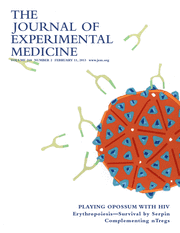
CELLULAR IMMUNOLOGY
Scope & Guideline
Unveiling the Complexities of Immune Responses
Introduction
Aims and Scopes
- Immune Cell Functionality:
Research on the roles and mechanisms of various immune cells, including T cells, B cells, macrophages, and dendritic cells, in health and disease. - Signaling Pathways in Immunology:
Studies investigating the intracellular signaling pathways that regulate immune responses, such as NF-κB, MAPK, and JAK-STAT pathways. - Inflammation and Autoimmunity:
Exploration of the mechanisms and pathways involved in inflammatory responses and autoimmune diseases, providing insights into potential therapeutic targets. - Cancer Immunology:
Research focused on the interactions between the immune system and tumors, including immune evasion mechanisms and the development of immunotherapies. - Regulatory Mechanisms in Immunity:
Investigations into the regulatory networks that govern immune cell differentiation, activation, and function, including the role of regulatory T cells and cytokines. - Infectious Disease Immunology:
Studies examining immune responses to various pathogens, including bacteria, viruses, and parasites, and the implications for vaccine development and treatment. - Microbiome and Immunity:
Research exploring the relationship between the microbiome and the immune system, including how gut microbiota influences immune responses.
Trending and Emerging
- Cancer Immunotherapy:
An increasing focus on novel immunotherapeutic strategies, including CAR-T cell therapy, checkpoint inhibitors, and the role of the tumor microenvironment in shaping immune responses. - Regulatory T Cell Mechanisms:
Heightened interest in understanding the roles of regulatory T cells and their mechanisms in maintaining immune homeostasis and preventing autoimmune diseases. - Innate Immunity and Inflammation:
Growing research on the innate immune system's role in inflammation, particularly concerning diseases like COVID-19 and autoimmune conditions. - Microbiome and Immune Interactions:
Emerging studies investigating the intricate relationships between the microbiome and immune responses, emphasizing the microbiome's impact on health and disease. - Novel Biomarkers and Therapeutic Targets:
Increased emphasis on identifying biomarkers for immune responses and potential therapeutic targets, especially in cancer and autoimmune diseases. - Metabolic Regulation of Immune Cells:
Research exploring how metabolic processes influence immune cell function and differentiation, providing insights into new therapeutic strategies.
Declining or Waning
- Traditional Vaccine Development:
Research focusing solely on conventional vaccine development has diminished, with a shift towards novel approaches such as mRNA vaccines and dendritic cell vaccines. - Basic Immunological Mechanisms:
General studies on fundamental immunological processes without specific applications or disease contexts are less frequently published, as the field moves towards more translational and applied research. - Autoimmunity without Therapeutic Context:
Papers exploring autoimmunity without linking findings to therapeutic implications or translational research have become less common, indicating a preference for studies with direct clinical relevance. - Single Cell Analysis in Non-Cancer Contexts:
While single-cell analysis remains a hot topic, studies focusing on non-cancer contexts have decreased, as the applications in cancer immunology have gained more traction.
Similar Journals

CLINICAL AND EXPERIMENTAL IMMUNOLOGY
Exploring Innovative Insights in Clinical ImmunologyClinical and Experimental Immunology, published by Oxford University Press, is a premier journal that has been a cornerstone in the field of immunology since its inception in 1966. With an ISSN of 0009-9104 and an E-ISSN of 1365-2249, this journal holds a significant position in academic research, currently ranking in the Q2 category for both Immunology and Allergy (2023). Its impactful contributions are reflected in its Scopus rankings, where it stands at Rank #63 out of 233 in Immunology and Allergy, placing it in the 73rd percentile, and Rank #73 out of 236 in Immunology and Microbiology. Researchers, healthcare professionals, and students will find this journal an invaluable resource for cutting-edge studies, reviews, and clinical advancements in the ever-evolving domain of immunology. While the publication does not offer open-access options, it remains a pivotal platform for disseminating knowledge that impacts both clinical practice and experimental research.

BMC IMMUNOLOGY
Fostering Collaboration in Immunological DiscoveriesBMC Immunology is a prominent open-access journal published by BMC that has been at the forefront of immunological research since its inception in 2000. Based in the United Kingdom, this journal aims to advance the understanding of immune system functions and disorders through high-quality, peer-reviewed articles. With an impressive scope encompassing various facets of immunology, BMC Immunology has earned a Q3 ranking in the Immunology category according to the 2023 category quartiles, demonstrating its growing impact and relevance in the scientific community. Researchers and professionals will find valuable insights in its array of published works, spanning both foundational studies and innovative applications. The journal's commitment to open access ensures that cutting-edge research is freely available, fostering collaboration and advancement in the field. For those looking to stay updated on the latest developments in immunology, BMC Immunology stands as an essential resource for researchers, professionals, and students alike.

Immune Network
Connecting Ideas, Transforming ImmunologyImmune Network is a prestigious journal dedicated to disseminating high-quality research in the field of immunology, infectious diseases, and allergy, under the esteemed KOREA ASSOCIATION OF IMMUNOLOGISTS. Founded in 2016, this journal has quickly ascended to a top-tier publication, achieving Q1 rankings in 2023 in multiple relevant categories, including Immunology, Allergy, and Infectious Diseases. With a strong emphasis on innovation and interdisciplinary research, Immune Network appeals to a diverse audience of researchers, professionals, and students keen on advancing the understanding of immune responses and disease mechanisms. However, it is crucial to note that the journal operates under a subscription model without open-access provisions. Its impact factor further solidifies its reputation, reflecting the significant influence of the articles published. Located in South Korea, the journal serves as a global platform for sharing revolutionary insights and fostering collaborations within the immunology community.

JOURNAL OF EXPERIMENTAL MEDICINE
Unraveling Complexities in Immunology and BeyondJOURNAL OF EXPERIMENTAL MEDICINE, published by Rockefeller University Press, is a renowned peer-reviewed journal dedicated to advancing the field of experimental medicine since its inception in 1896. With an impressive impact factor and categorized in the Q1 quartile for Immunology, Immunology and Allergy, and Miscellaneous Medicine, this journal stands at the forefront of medical research and innovation. It provides a prestigious platform for scholars and practitioners to disseminate groundbreaking findings that drive the understanding of disease mechanisms and therapeutic strategies. While the journal is not open access, it maintains high visibility and engagement within the scientific community, fostering collaboration among researchers, professionals, and students alike. The journal's consistent ranking in the top percentiles of Scopus illustrates its significant impact and commitment to excellence in medical research.

Mucosal Immunology
Exploring the Intricacies of Immune ResponsesMucosal Immunology, published by Elsevier Science Inc, is a leading journal dedicated to advancing the field of immunology with a particular focus on mucosal immunity. Since its inception in 2008, the journal has established itself as a premier source of cutting-edge research, evidenced by its impressive Q1 ranking in both Immunology and Allergy for 2023, and its notable positions within the top ranks of Scopus (Rank #21/233 in Immunology and Allergy and Rank #24/236 in Immunology and Microbiology). The journal serves as a vital resource for researchers, professionals, and students aiming to explore the complexities of mucosal immune responses and their implications in health and disease. While it operates under a subscription model, Mucosal Immunology is committed to disseminating quality research globally and enhancing collaborative efforts within the scientific community. Explore the latest findings and connect with influential scholarship in this rapidly evolving field.

Immunological Medicine
Illuminating the Complexities of the Immune ResponseImmunological Medicine, published by Taylor & Francis Ltd, is an esteemed open-access journal that has made significant strides in the field of immunology since its establishment in 2018. With an E-ISSN of 2578-5826, the journal has quickly gained recognition for its contribution to advancing immunological research, evidenced by its impressive ranking in the Q2 quartile for both immunology and allergy. Positioned in the United Kingdom, it offers a platform for publishing high-quality original research, reviews, and case studies that delve into the complex interactions of the immune system and its implications for human health. The journal serves as a vital resource for researchers, professionals, and students engaged in the burgeoning fields of immunology, providing open access to a wide audience and fostering collaboration and innovation. With a current Scopus ranking of #81 out of 233 in Immunology and Allergy and #97 out of 236 in Immunology and Microbiology, the journal aims to enhance the visibility and impact of cutting-edge research by bridging the gap between academia and clinical practice.

IMMUNOBIOLOGY
Pioneering insights into the complex world of immunobiology.IMMUNOBIOLOGY is a prestigious academic journal published by Elsevier GmbH that significantly contributes to the fields of hematology and immunology. With its ISSN 0171-2985 and E-ISSN 1878-3279, this journal has been disseminating impactful research since 1979, positioning itself at the forefront of immunological and hematological advances. The journal holds a commendable ranking of Q2 in Hematology and Q3 in both Immunology and Immunology and Allergy, indicating its relevance and influence within the scientific community, as reflected by its Scopus rankings. Although IMMUNOBIOLOGY operates under a subscription model, it remains dedicated to expanding knowledge across disciplines, fostering innovative research, and facilitating connections among researchers, professionals, and students. Situated in Munich, Germany, this journal is continually evolving and aims to remain an essential resource for the latest discoveries and insights in the realms of immunity and blood disorders, ultimately enhancing our understanding of complex biological systems.

INTERNATIONAL IMMUNOLOGY
Transforming Knowledge into Therapeutic Solutions in Immunology.INTERNATIONAL IMMUNOLOGY, published by OXFORD UNIV PRESS, stands out as a premier journal in the field of immunology, providing a vital platform for disseminating groundbreaking research and innovative developments within the discipline. With an impressive Q1 ranking in Immunology and Allergy, as well as in Medicine (miscellaneous), it consistently showcases high-impact studies that contribute to the advancement of immunological knowledge. The journal spans over three decades, from its inception in 1989 to its ongoing contributions as of 2024, thus solidifying its reputation in the scientific community. Researchers, professionals, and students will find valuable articles that delve into the complexities of immune responses, therapeutic interventions, and emerging immunological paradigms, ensuring INTERNATIONAL IMMUNOLOGY remains at the forefront of knowledge in the life sciences.

Immunity Inflammation and Disease
Advancing knowledge in immune responses and inflammatory diseases.Immunity, Inflammation and Disease is a premier open-access journal published by WILEY, dedicated to advancing the field of immunology and allergy. Launched in 2013, this journal has established itself as a significant platform for researchers and professionals to disseminate high-quality research findings and innovative insights that address critical issues in immune responses and inflammatory diseases. With an impact factor that reflects its growing influence and a current ranking in Q3 for Immunology and Q2 for Immunology and Allergy, this journal serves a diverse audience keen on exploring cutting-edge developments. Researchers are encouraged to submit their work to share their findings with a global reach, foster collaboration, and enhance the understanding of immune mechanisms and therapeutic strategies. Accessible since its inception, Immunity, Inflammation and Disease is committed to open science, ensuring that vital research is freely available for the advancement of knowledge within the academic community and beyond.

VIRAL IMMUNOLOGY
Advancing knowledge at the intersection of virus and immunity.Viral Immunology, published by Mary Ann Liebert, Inc, stands as a prominent journal dedicated to advancing the understanding of the interplay between viral infections and host immune responses. With a strong focus on immunology, molecular medicine, and virology, the journal provides a platform for the dissemination of high-quality research findings and innovative methodologies that could shape the future of these critical fields. Although it currently holds a Q3 rating across its relevant categories and a respectable ranking within the Scopus database, Viral Immunology continues to strive for excellence with a commitment to publishing influential research that informs both academic and clinical practices. The journal accepts submissions in various formats—original research, reviews, and commentaries—catering to a diverse readership that includes researchers, professionals, and students engaged in the biological and medical sciences. Readers can anticipate insightful articles that address urgent challenges in immunological responses to viral infections, paving the way for new therapeutic strategies and public health initiatives.